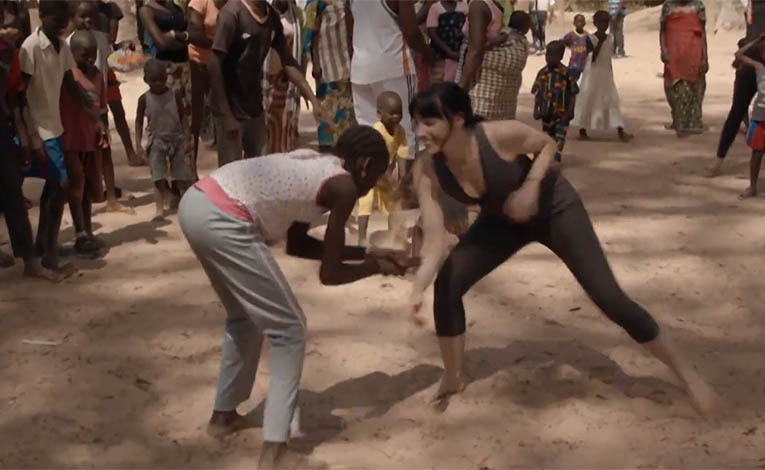In Senegal, a nation on the Northwest coast of Africa, wrestling is more than a sport—it’s a tradition. Wrestling, or laamb as it’s called here, is an important aspect of Senegalese culture that combines strength and skill with mysticism and community gathering. Nearly everyone, both men and women, participates in laamb from a young age.
In episode four of A Woman’s Place, filmmakers Kassidy Brown and Allison Rapson explore how Senegalese women are forging a place for themselves within a national tradition that’s become increasingly male-dominated. They met Isabelle Sambou, a member the “Super 8,” an elite group of female wrestlers selected by United World Wrestling as ambassadors for the sport.
Orphaned at a young age, Sambou was collectively raised by the women in her small village. She grew up wrestling, just like the other kids in her community, and was talented enough to be discovered at a village tournament. Although men are generally accepting of women wrestling at an amateur level, women have virtually no access to the fame, fortune, and influence that male wrestlers in Senegal have at the professional level. “When it comes to the huge national wrestling tournaments with big sponsors and wrestlers making millions of dollars, women are not invited to that,” Brown said.
Interestingly, wrestling wasn’t considered a “masculine” sport until money and power entered the picture. “Wrestling in Senegal early on had a lot of religious and spiritual ties, so it’s a lot more than just athletic expression,” said Rapson. “Once the idea of celebrity introduced itself into the sport, it also became about access to money and access to power and fame. Then it became about masculine expression. But that is not how the sport started.”
With this in mind, Sambou has made it her mission to reclaim wrestling as a sport for everyone. Outside of her own competitions, Sambou encourages other girls in her village and throughout Senegal to participate in wrestling. And since she became an Olympic competitor, Sambou has been recognized as an elder in her village and celebrated as a community leader by the group of women who raised her.
With power and recognition behind them, Sambou hopes professional female wrestlers—and Senegalese women as a whole—can gain access to greater political representation and positions of power in their country.
Courtesy of: Yes! Magazine
